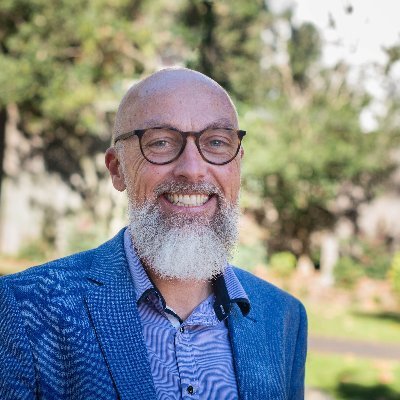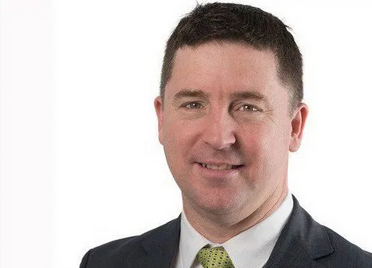Development of the NSW Conversion Practices Ban
Labor’s Promises
Leading up to the 2023 NSW election, the Labor party and Chris Minns made clear commitments to protect faith communities in any “LGBTIQ conversion practices” legislation. At a faith leaders forum in Paramatta, Chris Minns said:
Taking offense at the teachings of a religious leader will not be banned. Expressing a religious belief through sermon will not be banned. And an individual, of their own consent, seeking guidance through prayer will not be banned either.
At forums across the State, ALP MPs and candidates delivered a scripted commitment, which included:
Neither the Greenwich Bill nor the Victorian model will be the starting point for our legislation.
Any legislation to ban conversion therapy or suppression practises must not outlaw individuals voluntarily seeking out medical health, allied health or other advice and assistance regarding their personal circumstances.
One candidate, who went on to win a very marginal seat, added:
If someone comes voluntarily to seek advice, to seek help, to seek guidance, it is imperative that their right to do that is not outlawed. So I will commit to protecting a pastoral care or prayer situation where the person has come voluntarily and asked for that.
These promises (along with similar commitments from the Coalition) were communicated widely through faith comm
Initial proposals and concern
Following the 2023 election, the Attorney General directed the Department of Communities and Justice to develop a proposal for banning conversion practices.
In July 2023, the Department of Communities and Justice released a discussion paper with proposals. The paper’s proposals would have effectively transplanted the Victorian model into NSW. Faith leaders were given only 4 weeks to respond with submissions, and were told that the Government intended to pass the final legislation in November. This gave rise to fears that the Government would push through Victorian-based legislation with little consultation.
Freedom for Faith helped coordinate a response to the proposals, co-signed by major faith leaders across NSW.
In August, Alex Greenwich, the independent member for Sydney, introduced his own bill. This bill was an almost exact reproduction of the Victorian legislation.
Either of these proposals would have broken the Government’s promise to not replicate the Victorian model and not ban prayer, preaching and consensual requests for support.
In response, faith communities mobilised to express their concerns to MPs, with Freedom for Faith’s help. Thousands of emails were sent, and many faith leaders had meetings with their local MP to raise the issue.
Bill negotiation
In response to this pressure, the Government invited a very small select group of faith leaders to consult on draft legislation. The Government also consulted with other stake holders, including LGBTIQ+ advocates and Alex Greenwich. These consultations were kept highly confidential, and the faith leaders were not permitted to share the content of drafts. Most faith leaders – including major Christian denominations – were excluded from the consultation process.
Final legislation was drafted by March 2024. The Government assured faith leaders that the bill fulfilled the Premier’s promises and protected basic religious freedoms. The legislation still had weaknesses, which faith leaders had been raising privately in the consultation process, but the text of the bill appeared to protect basic religious freedoms.
Last minute changes and Government speeches
However, on the weekend before the bill was introduced, the Government made last minute changes to the wording that introduced significant ambiguities and problems.
In the parliamentary debate, the Second Reading Speeches from both the Attorney General and the Leader of the Government in the Legislative Council also “interpreted” a number of the sections of the bill in ways that were contradictory to the commitments from the Government. These statements significantly undermined the protections of faith communities.
As a result, the bill that was introduced was significantly weaker than the bill that had been negotiated with faith leaders.
Read more details about the problems with the Act.
Faith leaders’ response
The introduction of the bill to Parliament was the first time that most faith leaders had seen it and was the first time that the leaders involved in the confidential consultation were allowed to discuss it publicly. The bill was also introduced with speeches from the Attorney General and the Leader of the Government in the Legislative Council that significantly changed the meaning of the text.
As soon as the bill was introduced, faith leaders wrote to the Premier, Attorney General and MPs raising their concerns and asking for minor but important amendments that would have removed ambiguity and enabled the bill to fulfil the Government’s promises.
Those requests were:
- Define suppress as “means attempt to eliminate”
- Amend 3(3)(b) to protecting “meeting the individual’s needs or request.”
- Clarify the religious exemption in 3(3)(c) so that it does not use a circular reference to “change and suppression”
- Expand 4(d) to include a wider range of familial and care relationships.
- Clarify that 4(d) permits a parent or guardian to set rules or behavioural standards for a child under their care.
These changes were not accepted by the Government, and the bill continued unamended.
Government’s reply
Following the passing of the Act, the Attorney General, Michael Daley, wrote to faith leaders in response to their concerns, saying:
the Act:
- Protects the right to prayer
- Protects discussions between parents and their children about sexuality and gender
- Protects the general rules of religious orders, for example, the celibacy of priests
- Protects general school rules, such as uniform requirements.
And to be clear — the Act does not:
- Stop you from telling a young person not to have sex before marriage
- Stop you counselling a married person not to have an affair.
However, analysis of the Act as passed and interpreted by the Attorney General’s speech indicate that this claim is not correct.


